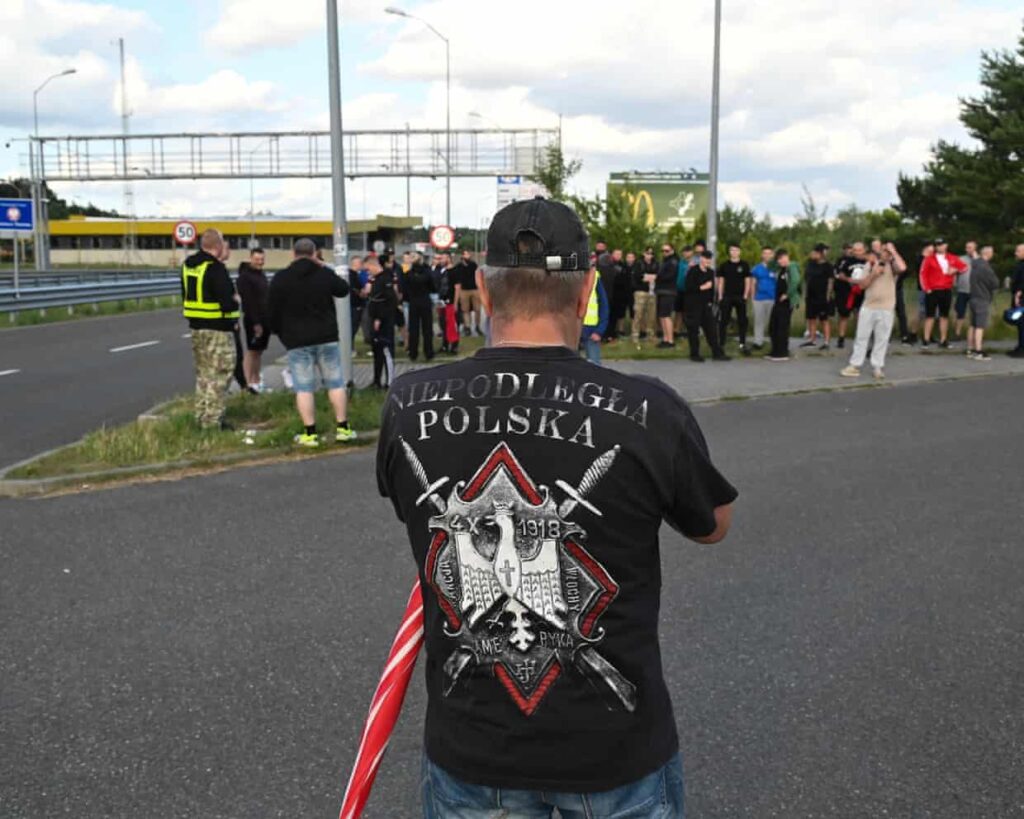Poland has announced a temporary tightening of its border controls with Germany and Lithuania, a move that comes amid escalating tensions over irregular crossings. The decision follows increased activity by far-right activists who have begun to patrol these borders, raising concerns about safety and international relations.
The Polish government has stated that the enhanced measures are necessary to curb the rising number of unauthorized entries, which have become a contentious issue in recent months. This step is seen as a response to both internal pressures and external diplomatic challenges.
Background and Context
The announcement comes as Poland grapples with a surge in irregular crossings, particularly along its borders with Germany and Lithuania. These crossings have been attributed to a variety of factors, including economic migration and geopolitical tensions. The situation has been further complicated by the activities of far-right groups, who have taken it upon themselves to monitor and sometimes intervene in border activities.
Historically, Poland has been a transit country for migrants seeking to reach Western Europe. However, the recent influx has placed significant strain on its border management capabilities. The European Union has been actively involved in discussions with Poland to address these challenges, emphasizing the need for a coordinated approach to border security.
Expert Opinions and Reactions
Experts in international relations and border security have weighed in on Poland’s decision. Dr. Anna Kowalski, a political analyst at the University of Warsaw, noted that the move reflects a broader trend of tightening border controls across Europe. “Poland’s actions are part of a wider European response to migration pressures, driven by both security concerns and domestic political considerations,” she explained.
Meanwhile, human rights organizations have expressed concern about the potential for increased tensions and the impact on migrants. “While border security is important, it is crucial to ensure that the rights of individuals are respected,” stated a spokesperson from Amnesty International.
Historical Parallels
This development follows a pattern seen in other European countries, where migration issues have led to heightened border security measures. In 2015, during the height of the migrant crisis, several countries implemented similar controls to manage the flow of people across their borders.
“By the Numbers: In 2022, Poland recorded over 40,000 irregular border crossings, a significant increase from previous years.”
Implications and Future Outlook
The move represents a significant shift in Poland’s border policy, with potential implications for its relations with neighboring countries and the European Union. The temporary measures are likely to be closely monitored by both domestic and international observers, as they could set a precedent for future actions.
Looking ahead, Poland may need to balance its security concerns with the need for humanitarian considerations. The government has indicated that it will continue to work with EU partners to develop long-term solutions to the challenges posed by irregular migration.
As the situation evolves, the focus will be on how Poland manages its borders while maintaining compliance with international standards and obligations. The outcome of these efforts will be crucial in shaping the country’s approach to migration and border security in the coming years.
About The Author
 Gunfire Near NYC Pride Injures Two Teens, Raises Safety Concerns
Gunfire Near NYC Pride Injures Two Teens, Raises Safety Concerns Elon Musk and Donald Trump Clash Over Controversial Tax Bill
Elon Musk and Donald Trump Clash Over Controversial Tax Bill Israeli Hostage Tortured to Death by Hamas Over Tattoo Misunderstanding
Israeli Hostage Tortured to Death by Hamas Over Tattoo Misunderstanding Tragic End for Backpacker Juliana Marins: A Journey of Courage and Heartbreak
Tragic End for Backpacker Juliana Marins: A Journey of Courage and Heartbreak Senate Poised to Pass Trump’s Major Tax and Spending Bill
Senate Poised to Pass Trump’s Major Tax and Spending Bill